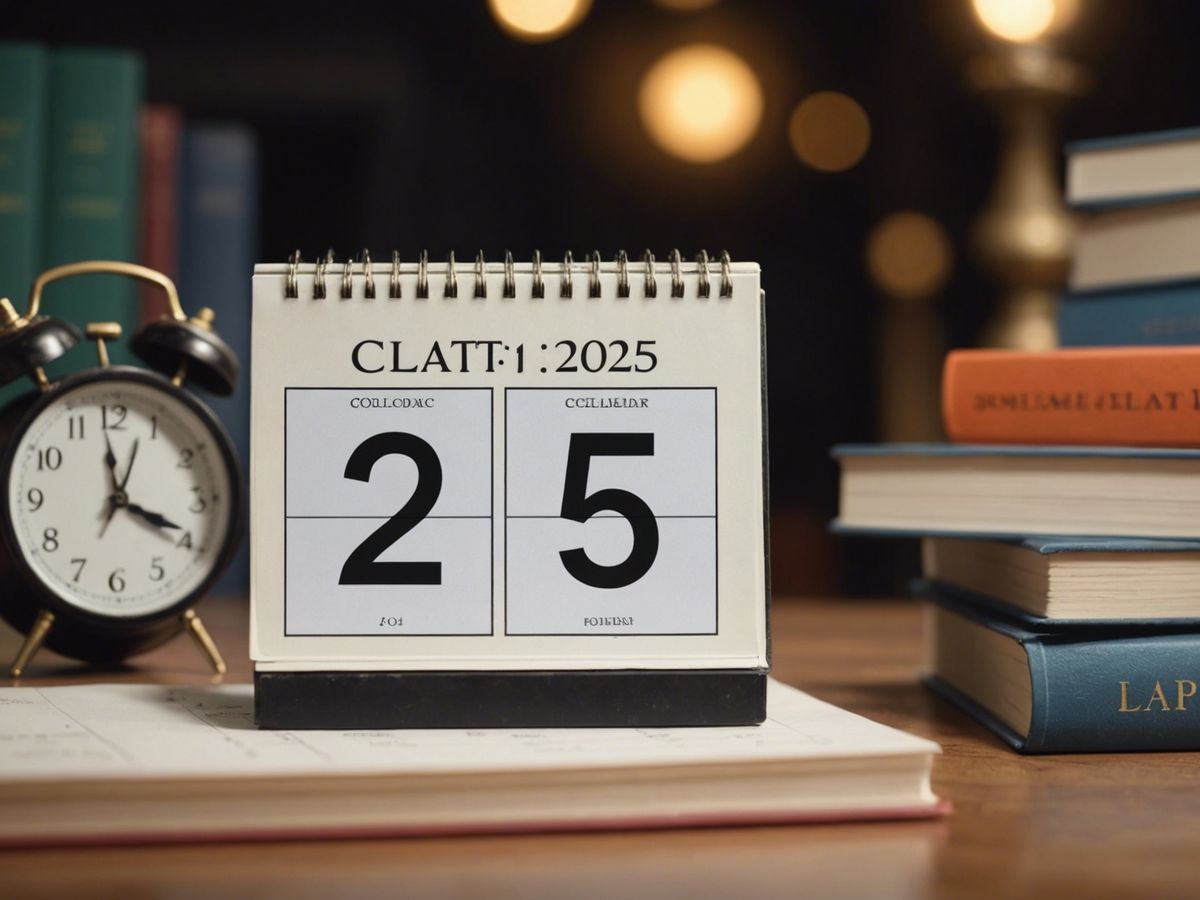Choosing the right stream after your 10th-grade examinations can significantly impact your CLAT preparation and future career in law. The stream you select should align with your interests, strengths, and long-term goals. This comprehensive guide aims to help you understand the importance of stream selection for CLAT, explore the benefits of different streams, and provide tips for making an informed decision.
Key Takeaways
- Your stream selection should align with your personal interests and strengths for effective CLAT preparation.
- The Humanities stream closely aligns with the CLAT syllabus and enhances critical thinking and reading skills.
- Commerce stream provides a strong foundation in logical reasoning and analytical skills, beneficial for CLAT.
- Science stream develops analytical and problem-solving skills, though balancing it with CLAT coaching is essential.
- Consulting with educators, career counselors, and self-reflection are crucial steps in making the right stream choice.
Understanding the Importance of Stream Selection for CLAT
Choosing the right stream in Class 11 is a crucial step in your comprehensive guide on preparing for CLAT from class 11, emphasizing understanding CLAT, eligibility, subject selection, and effective preparation strategies for success in law entrance exams. The stream you select can significantly impact your preparation journey and long-term career goals. This section will delve into the various aspects that make stream selection vital for CLAT aspirants.
Impact on CLAT Preparation
The stream you choose can either align with or diverge from the CLAT syllabus. For instance, the Humanities stream often covers subjects that are directly relevant to CLAT, such as Political Science and English. On the other hand, streams like Science and Commerce offer unique skills that can also be beneficial. Ultimately, the most suitable stream for CLAT preparation is the one that aligns with your interests and plays to your strengths.
Long-term Career Goals
Your stream choice should not only focus on immediate CLAT preparation but also consider your long-term career aspirations. If you aim to specialize in corporate law, a Commerce background might provide a solid foundation. Conversely, if you are inclined towards public policy or human rights law, the Humanities stream could be more beneficial.
Personal Interests and Strengths
Reflecting on your personal interests and strengths is essential when choosing a stream. What subjects ignite your passion? In which subjects do you excel? Opt for a stream that allows you to pursue your interests and nurture your strengths. Consulting with educators and career counselors can also provide valuable insights to aid your decision-making process.
Benefits of Choosing the Humanities Stream
Alignment with CLAT Syllabus
The humanities stream encompasses a wide range of subjects, such as history, political science, geography, sociology, philosophy, human rights, and gender studies. These subjects lay a robust foundation in the social sciences, offering valuable insights into comprehending and applying legal concepts. They nurture the skills necessary for critical thinking and understanding the intricacies of society, both essential attributes for law aspirants.
Development of Critical Thinking Skills
Humanities subjects like Psychology and Philosophy directly engage with logical theories and arguments, encouraging students to understand and construct logical sequences and arguments. This strengthens critical thinking and argumentative skills, aligning closely with the Logical Reasoning section’s demands.
Enhanced Reading and Writing Abilities
The humanities stream is for students with a keen interest in understanding society, culture, politics, and human behavior. It is often mistakenly perceived as the ‘easiest’ among the three streams but offers deep insights into various aspects of human life and society. Enhanced reading and writing abilities are crucial for success in CLAT, and the humanities stream provides ample opportunities to develop these skills through extensive reading and writing assignments.
Advantages of the Commerce Stream for CLAT Aspirants
Choosing the Commerce stream can offer several advantages for CLAT aspirants. This section explores how a background in Commerce can be beneficial for mastering CLAT 2025: ultimate guide to CLAT preparation. strategies, study materials, technology usage, recommended books, key universities accepting CLAT scores.
Foundation in Logical Reasoning
Commerce students often have a strong foundation in logical reasoning due to their exposure to subjects like Accountancy and Business Mathematics. This can make the ‘Quantitative Techniques’ section of CLAT relatively more accessible. Additionally, the analytical skills developed through these subjects are invaluable for the logical reasoning sections of the exam.
Understanding of Business and Economics
With subjects like Economics, Commerce students gain a deeper understanding of global affairs, which is advantageous for the ‘Current Affairs’ section of CLAT. This knowledge not only helps in the exam but also provides a broader perspective on various issues, aiding in long-term career goals.
Skill Development for Analytical Sections
The Commerce stream emphasizes the development of analytical skills, which are crucial for CLAT. Subjects such as Business Studies and Economics require students to analyze data, understand trends, and make informed decisions. These skills are directly transferable to the analytical sections of CLAT.
In summary, the Commerce stream offers a well-rounded foundation for CLAT preparation. It strengthens numerical ability, enhances understanding of economic principles, and develops critical analytical skills, making it a viable option for aspiring law students.
Exploring the Science Stream for CLAT Preparation
When it comes to preparing for the CLAT exam, the relevance and benefits of the Science stream might not be immediately apparent. However, there are several ways in which this stream can influence CLAT preparation.
Analytical and Problem-Solving Skills
The Science stream inherently focuses on developing strong analytical and problem-solving skills. Regular engagement with mathematical problems in subjects like Physics and Mathematics provides a solid foundation for the "Quantitative Techniques" section of the CLAT exam. Logical reasoning is an integral part of scientific studies, which can be highly beneficial for the "Logical Reasoning" section of the CLAT.
Time Management and Discipline
Science students often have rigorous schedules that require effective time management and discipline. These skills are crucial for balancing CLAT prep with other academic responsibilities. The ability to manage time efficiently can make a significant difference in your overall CLAT exam preparation.
Balancing Science with CLAT Coaching
While the Science stream focuses on subjects like Physics, Chemistry, and Biology, the analytical and logical skills you develop can be highly beneficial for CLAT. You may need to dedicate some extra time to enhancing your comprehension and legal reasoning skills, but many Science stream students have successfully cracked the CLAT. Enrolling in Clat coaching can provide the structured guidance needed to excel in the exam.
The ultimate guide to CLAT study material for 2024 by CLAT Possible. Dive into recommended reading list for CLAT 2024, ensuring success with the right study materials.
Tips for Making the Right Stream Choice
TIPS FOR CHOOSING THE RIGHT STREAM FOR CLAT PREPARATION
Here are some additional pointers to aid your decision-making process:
Reflect on Your Interests and Strengths: What subjects ignite your passion? In which subjects do you excel? Opt for a stream that allows you to pursue your interests and nurture your strengths.
Study the CLAT Syllabus: Ensure that your chosen stream covers subjects included in the CLAT syllabus. A well-aligned stream can provide a solid foundation for the exam.
- MAKE AN INFORMED DECISION
Spend time researching each stream and reflecting on how they align with your personal and academic profile. Consider short-term and long-term implications of your choice.
Keep in mind that your career aspirations may evolve. Choose a stream that keeps options open, allowing for flexibility in your future career choices.
Free Resources for CLAT Preparation
Use the following free CLAT preparation resources by Law Prep Tutorial:
Ultimately, the most suitable stream for CLAT preparation is the one that aligns with your interests and plays to your strengths. Unsure about your choice? Consider seeking guidance from parents, teachers, or a career counselor.
Here are a few additional tips that make all the difference when you are preparing for CLAT, regardless of your stream of choice:
Supplementing Your Stream with Focused CLAT Preparation
Importance of Coaching Classes
Coaching classes play a pivotal role in CLAT preparation. They offer structured learning, expert guidance, and a competitive environment. Enrolling in a reputable coaching institute can significantly enhance your preparation by providing access to experienced faculty and comprehensive study materials.
Self-Study Strategies
Self-study is equally important for CLAT success. It allows you to learn at your own pace and focus on areas where you need improvement. Create a study schedule, stick to it, and regularly assess your progress. Utilize practice tests to gauge your understanding and identify weak points.
Utilizing Online Resources
The internet is a treasure trove of resources for CLAT aspirants. From online courses to practice papers, there are numerous tools available to aid your preparation. Websites, forums, and educational platforms offer valuable insights and materials. Make sure to leverage these resources to stay updated and well-prepared.
Combining coaching classes with disciplined self-study and effective use of online resources can create a robust preparation strategy for conquering CLAT.
Real-life Success Stories: Stream Choices and CLAT Success
Humanities Stream Achievers
Choosing the Humanities stream has proven to be a successful path for many CLAT aspirants. One notable example is Ananya Sharma, who excelled in her CLAT exam by leveraging her strong foundation in subjects like Political Science and History. Her ability to critically analyze texts and construct well-founded arguments played a crucial role in her success. Ananya’s journey underscores the importance of aligning one’s stream with the CLAT syllabus.
Commerce Stream Success Stories
The Commerce stream has also produced its share of CLAT achievers. Take the case of Rohan Mehta, who managed to crack CLAT on his first attempt. His background in Business Studies and Economics provided him with a solid understanding of logical reasoning and analytical skills. Rohan’s story is a testament to how a Commerce background can be beneficial for CLAT preparation.
Science Stream Victories
While less common, there are instances of students from the Science stream excelling in CLAT. Priya Verma, a Science student, balanced her rigorous science curriculum with focused CLAT coaching. Her analytical and problem-solving skills, honed through her science studies, were instrumental in her success. Priya’s experience highlights the importance of time management and discipline in balancing science with CLAT preparation.
Decoding success: how to crack CLAT in your first attempt – CLAT Possible. Guide for CLAT 2024 aspirants. Strategies, courses, and results highlighted.
For those looking to discover top law schools in NCR, CLAT Possible’s guidance can be invaluable. Their expert coaching, study materials, mock tests, and personalized support are designed to help students succeed in entrance exams and law school admissions.
Discover how students from diverse academic streams have achieved remarkable success in CLAT through our tailored coaching programs. Their inspiring journeys highlight the importance of choosing the right stream and dedicated preparation. Ready to start your own success story? Visit our website to explore our comprehensive courses and resources designed to help you excel in CLAT and other law entrance exams.
Conclusion
Choosing the best stream for CLAT preparation is a pivotal decision that should align with your interests, strengths, and long-term career goals. While the humanities stream is often favored for its alignment with the reading-heavy nature of the CLAT exam, science and commerce streams also offer unique advantages. Ultimately, no stream inherently disadvantages you in the CLAT exam; success hinges on your preparation and dedication. If you’re unsure about your choice, seek guidance from parents, teachers, or career counselors. Remember, the best stream is the one that provides a strong foundation for your desired areas of law and complements your personal strengths and interests.
Frequently Asked Questions
Which stream is best for CLAT preparation?
The best stream for CLAT preparation depends on your personal interests, strengths, and career goals. Humanities is often recommended due to its alignment with the CLAT syllabus, but Commerce and Science streams also offer unique advantages.
Can I crack CLAT with a Science stream background?
Yes, students from the Science stream can crack CLAT. The analytical and problem-solving skills developed in Science can be beneficial for the exam. However, it’s important to supplement your studies with focused CLAT preparation.
Is the Humanities stream more beneficial for CLAT?
The Humanities stream is often considered beneficial for CLAT due to its alignment with the exam’s syllabus, particularly in areas like reading comprehension, critical thinking, and general knowledge.
How does the Commerce stream help in CLAT preparation?
The Commerce stream helps in CLAT preparation by providing a foundation in logical reasoning, business, and economics, which are useful for the analytical sections of the exam.
Should I take coaching classes for CLAT if I choose a non-Humanities stream?
Yes, regardless of the stream you choose, coaching classes can provide structured preparation, expert guidance, and practice materials tailored for CLAT.
What factors should I consider when choosing a stream for CLAT?
When choosing a stream for CLAT, consider your personal interests, strengths, and long-term career goals. Consulting with educators, parents, or career counselors can also help in making an informed decision.











